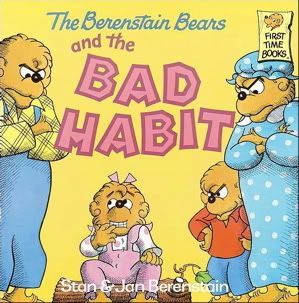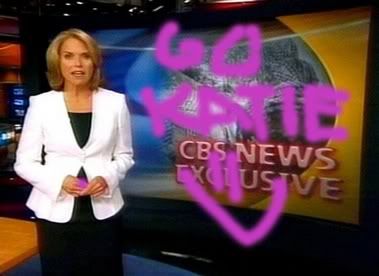The media are communicators and broadcasters to our society. At times, the media can present a message to either influence people’s opinions, views and behavior. This tactic is also known as propaganda, "the spreading of ideas, information, or rumor for the purpose of helping or injuring an institution, a cause, or a person." (Webster Dictionary) The novel, The Kite Runner, by Khaled Hosseini, is a form of propaganda describing Afghanistan’s civil injustices, poverty, and their fanatic government leaders, the Taliban.
Hosseini, tells a story about the life of a wealthy Pashtun, Amir, and his Hazara servant, Hasaan. Throughout the novel, Amir goes through several life changing experiences, mostly in Afghanistan. The novel starts off with an obvious distinction between the upper and lower class. Amir was the top of the top, but unfornately for Hasaan he was on the bottom of the classes, a Hazara. Hasaan, along with other Hazaras were uneducated, frown upon and at times were often ostracized by the Afghanistan community. This is shown through this quote, “Afghanistan is the land of Pashtuns. It always has been, always will be. We are the true Afghans, the pure Afghans, not this Flat-Nose here. His people pollute our homeland, our watan. They are dirty as our blood” (41). In this scene, Assef, an upper class, describes Hazaras and the need to get rid of them. This is an injustice towards all Hazaras and displays the civil racism going in Afghanistan. This is propaganda because of the upper class's hatred towards Hazaras. This makes the upper class seem greedy and even racist towards their fellow Afghani people. Furthermore, Amir goes through life changing stages such as escaping Afghanistan, living in the United States, and his visit back to Afghanistan.
Amir goes back to his homeland of Kabul, Afghanistan to visit a sick family friend, Rahim Khan. He then later on finds out that he is on a mission to find Hasaan’s son, Sohrab. In his stay, he notices the huge differences between Afghanistan before he left and currently. “We had crossed the border and the signs of poverty were everywhere. I saw children dressed in rags chasing a soccer ball outside the huts” (231). This was a culture shock for Amir and gets worst. “The buildings that hadn’t entirely collapsed barely stood, with caved in roofs and walls pierced with rocket shells. Entire blocks had obliterated to rubble. I saw” (246). These scenes describes the poverty in Afghanistan. For desperation, Afghanis would do whatever it takes to earn money for food. In this incident, Amir sees a man selling his artificial leg. “He’s selling his leg. You can get good money for it on the black market. Feed your kids for a couple of weeks” (251). Everywhere Amir went in Afghanistan, poverty was evident, but sadly the Taliban had all the wealth. When Amir goes through the Wazir Akbar Khan district, he notices it was not as poor as the other areas. “To my surprise, most of the houses in the Wazir Akbar Khan district still had roofs and standing walls. In fact, they were in pretty good shape. Most of the important people live here now, Taliban” (260). This clearly shows inequality between the citizens of Afghanistan and governmental leaders such as the Taliban. These two scenes portrays Afghanistan as a poor and corrupt country. This is propaganda because it sheds some light Afghanistan's poverty dilemma to people who are unfamiliar with it. Moreover, along with poverty, the Taliban’s violence was a reoccurring problem in Afghanistan during Amir’s stay.
When Amir arrives at Rahim Khan’s house, Rahim tells the tragic news that the Taliban killed Hasaan. “The Talibs said he was a liar and a thief like all other Hazaras. So they took him to the street and order him to kneel and shot him in the back of the head. Amir in fact did not steal the house, but because he was a Hazara, the Taliban quickly assumed he did the crime. As a result, “Hasaan’s murders were dismissed as a case of self-defense. No one said a word about it. Most of it was fear of the Taliban I think. But no one was going to risk anything for a pair of Hazara servants” (219). Amir sets out to find Soraya and his friend and helper Farid comes along with him. During their travel, Faris points out a crumble village. “I had a friend there once. He was a very good bicycle repairman. The Taliban killed him and his family and burned the village” (244). This shows the Taliban’s insensitivity towards the Afghani people and their brutal punishments. Moreover, These two incidents were one of the many cruel events Hosseini wrote that the Taliban conducted.
The Taliban’s inhumane violence is clearly obvious and propaganda becomes more evident. This is shown during a soccer game. A Taliban leader stops the game during halftime to conduct a public display of execution. The Taliban then describes the convicted as sinners and deserving of their punishment of stoning. “Every sinner must be punished in a manner befitting his sin! How shall we answer those who throw stones at the windows of God’s house? WE SHALL THROW THE STONES BACK!” (270) “The man in the hole was now mangled mess of blood and shredded rags. His head slumped forward, chin or chest. When it was all over, when the bloodied corpses had been unceremoniously tossed into the backs of red pickup trucks” (271, 272). The message of this scene is to publicize the Taliban’s merciless acts towards to the Afghani people.
The Taliban murdered many and intimidated its citizens.
Amir finally finds Soraya and fights until the end against the Taliban leader. Before the two men fought, Assef, tells the story about Mazar on August 1998. He reminisces the acts of violence he did to some Afghanis. “Door to door we went, calling for men and boys. We’d shoot them right there in front of their families. Let them see. Let them remember who they were, where they belonged” (277). This depicts the irrational and emotionless choices the Taliban made. Moreover, these incidents can convey an audience to sympathize towards the country’s situation and victims, but also cause bad feelings towards to the Taliban.
Although this book is fiction, it has given me a better insight on the culture and more empathy towards the country. This book has not change my views on the country, simply because I am aware of the situation going on in Afghanistan. My views on Afghanistan are that it poverty-stricken, full of struggles, violence and injustices. Those who are not familiar with the situation in Afghanistan can definitely gain insight and also a change og views on this country.
Media transmits messages to its readers, viewers and listeners. Even though if the point is not bluntly said, such as the Kite Runner, if changes your point of view on anything, then by definition it is propaganda. The Kite Runner is clearly propaganda because it promotes the horrible conditions in the country, way of life for Afghans and the corrupted government, the Taliban. Whether good or bad, propaganda is meant to influence people’s opinions, something The Kite Runner does.




